
Pets continue to play an increasingly vital role in the international community. The 1st EAAP Workshop on Companion Animals is a dedicated forum to explore the diverse aspects of the bond between humans and their animal companions. This workshop brings together leading researchers in the field of animal science and veterinary science, to discuss the latest scientific advancements, share insights, explore innovative approaches to improving the lives of companion animals and raise awareness about the application of population management tools in pet breeding.
By convening this workshop, EAAP aims to foster a collaborative environment where knowledge and ideas can be exchanged freely, ultimately contributing to the advancement of companion animal science.
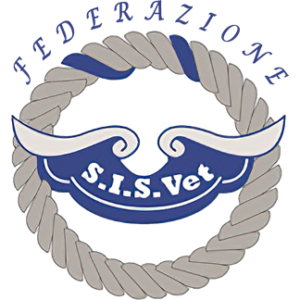

Wednesday 14th, 16:00 – 18:00
Domestication, Evolution and Biodiversity
Thursday 15th, 8:45 – 10:30
Health and Ageing
Thursday 15th, 11:00 – 13:00
Poster session
Thursday 15th, 14:30 – 16:30
Behaviour, cognition, and pet-human interaction
Thursday 15th, 17:00 – 18:00
Legislation
Friday 16th, 8:45 – 10:45
Pedigrees and population management
Friday 16th, 11:15 – 12:30
Motivations and trends in pet ownership
Friday 16th, 14:00 – 16:15
Nutrition
Friday 16th, 16:45 – 18:00
Morphology, Breeds
(Sweden)
On the necessity and impossibility of breeding working dogs
(Animal Welfare Unit in the Health and Food Safety Directorate General of the EC, Belgium)
Regulation of the European Parliament and of the Council on the welfare of dogs and cats and their traceability
(The Kennel Club, United Kingdom)
The Kennel Club’s Efforts in Managing Pedigree Dog Breeds: Strategies for Long-Term Sustainability
(University of Bern, Switzerland)
Genomic technologies and their application to combat hereditary diseases in dogs
(University of Missouri, USA)
Cats are not small dogs; dogs are not big cats!
(Tor Vergata University, Italy)
An ancient DNA perspective on the origins and spread of domestic cats in Europe
(Royal Veterinary College, United Kingdom)
Diseased by design or fit to function? Using scientifically informed selection to breed the companion dogs of the future
(University of Copenhagen, Denmark)
Why do people have dogs, cats and other companion animals?
(Free University of Berlin, Germany)
Alternative proteins in canine nutrition
Adaptation and stress, Age-related diseases, Ageing and longevity, Animal sensing, Behaviour, Biodiversity, Breed standards and their evolution, Breeds’ characterization and specialization, Care for pets, Circular economy, Climate effects on companion animals, Cognitive abilities, Design of breeding programmes, Digestion and metabolism, Domestication end evolution, Economics and market in companion animal field, Education and training, Environmental enrichment, Environmental impact, Epidemiology, Ethics, Feed supplements and additives, Feral and wild populations, Free-roaming dogs and cats, Functional properties, Future of companion animal breeding, Genetic consultancy and testing, Genetics and genomics, Genome sequencing and NGS/WGS, Genomic selection, Growth and development, Housing systems, Human interaction with pets, Identification-registration and movement, Immunity, Legislation, Life stage: adolescence, Life stage: adultness, Life stage: puppies and kittens, Life stage: senior, Microbiome, Molecular genetics, Morphology, Neonatal survival, New feeding systems, New phenotypes, New professions in companion animal science, New technologies, Novel feeds, By-products and alternative protein sources, Nutrient requirements, Nutrition, Obesity, Organic feeding, Owners, Phenomics, Population genetics, Population management, Random-bred pets, Reproduction and fertility, Responsible ownership, Selection objectives, Sensors, Services provided by companion animals – ecological – economic – social, Social media and fashion, Welfare, Working pets
Quark Hotel – Via Lampedusa, 11A, 20141 Milan, Italy
In the economic heart of Milan, just 4 km from the Duomo in the Bocconi University area, stands the new Quark Hotel Milano, a 4-star full-service hotel with one of the largest conference centers and meeting spaces in Milan. The restyle project bears an all-Italian signature that has been able to reinterpret the urban spirit of the place with an intelligent, elegant but functional design, beautiful to look at and easy to use. Perfectly nestled in the city’s peripheral context, the hotel offers a serene escape from the hustle and bustle of the center, with the convenience of reaching the metropolis’s main attractions quickly and easily. In a green and lively area of the city, Quark offers unparalleled breath and space.
Milan Central Station, then taxi to the hotel (20 minutes).
Second option: from Milan Central Station take the Metro Green Line M2, direction Abbiategrasso and: 1) get off after 10 stops at the Famagosta, catch the bus n. 95 direction Rogoredo and get off after 4 stops and then walking 9 minutes to the hotel; 2) get off at the last station Abbiategrasso and walking 20 minutes to the hotel.
20 min by car or Taxi (13 Km).
Alternatively: 1) take the Metro Blu Line M4 for 7 stops and get off at San Babila; 2) take the Metro Red Line M1, direction Bisceglie, for 4 stops and get off at Cadorna FS; 3) take the Metro Green Line M2, direction Abbiategrasso: a) get off after 10 stops at the Famagosta, then catch the bus n. 95 direction Rogoredo, get off after 4 stops and walking 9 minutes to the hotel; b) get off at the last station Abbiategrasso and walking 20 minutes to the hotel.
50 min by car or Taxi (63 Km)
Alternatively: by train “Milano express” from T1-T2 to Milan Cadorna Station, then taxi to the hotel (16 minutes). Second option: from Milan Cadorna Station take the Metro Green Line M2, direction Abbiategrasso and: 1) get off after 5 stops at the Famagosta, catch the bus n. 95 direction Rogoredo and get off after 4 stops and then walking 9 minutes to the hotel; 2) get off at the last station Abbiategrasso and walking 20 minutes to the hotel.
50 min by car or Taxi (60 Km).
Alternatively: by bus Terravision to Milan Central Station, then taxi to the hotel (20 minutes). Second option: from Milan Central Station take the Metro Green Line M2, direction Abbiategrasso and: 1) get off after 10 stops at the Famagosta, catch the bus n. 95 direction Rogoredo and get off after 4 stops and then walking 9 minutes to the hotel; 2) get off at the last station Abbiategrasso and walking 20 minutes to the hotel.
© 2023 EAAP – All rights reserved
To provide the best experiences, we use technologies such as cookies to store and/or access information on the device. Consent to these technologies will allow us to process data such as browsing behavior or unique IDs on this site. Not consenting or withdrawing consent may negatively affect some features and functions.

The Royal Canin Division, owner of the ROYAL CANIN® brand, is part of Mars, Incorporated and a global leader in Health Through Nutrition for cats and dogs. Founded in 1968 by French veterinarian, Dr. Jean Cathary, Royal Canin continues to push the limits of nutrition and knowledge in partnership with pet professionals and experts to fulfill its Purpose: A BETTER WORLD FOR PETS.
Its ambition is to go beyond providing science-based, precise nutritional solutions. This entails working together with stakeholders including breeders, pet owners, veterinarians, governments, and industry bodies to create an environment that nurtures and creates optimal health and well-being for cats and dogs.
Today the entire pet ecosystem is facing two key, interrelated challenges: a rise in unethical pet production and in extreme conformation.
This is why Royal Canin has developed CHOOSE HEALTH, a collaborative program of activities dedicated to fighting these two complex challenges. The initiative focuses on driving responsible pet ownership and responsible breeding, for a world that puts pet health first over physical appearance.

Neogen® provide worldwide genomic services that offer DNA testing solutions with quality data and rapid turn-around-time at an affordable price. As a global leader in companion animal genomic testing, we offer the platforms, services and expertise needed to enable research and innovation. When exciting discoveries and new insights are made, we provide the strategies and resources to bring those new findings to market where they can be used by researchers, breeders, owners and veterinarians.

Dr. Schoenebeck is a Group Leader based at The Roslin Institute (University of Edinburgh, UK). His group’s companion animal science include efforts to 1) define the genetic basis of skeletal morphology, 2) improve the assembly and annotation of the dog reference genome, and 3) produce canine induced pluripotent stem cells.

Full professor of Animal Genetic at Department of AgroFood, Environmental and Animal Science, University of Udine (Italy). Researches have focused on the on evaluation of molecular and cellular response to environmental stress, in order to define the related effects gene expression, apoptosis and proliferation in farm animals. Studies were also devoted to investigate in vivo and in vitro cell models the role of nutraceuticals on the regulation of metabolic and oxidative stress and their effect on gene expressions in farm and companion animals. Researches were addressed to evaluate the interaction of nutrition, probiotic and prebiotic with the gut microbiome in dogs and lactating cows.

DVM, PhD in Animal Production Science, Monica Isabella Cutrignelli is Full Professor of Animal Nutrition at Department of Veterinary Medicine and Animal Production (DMVPA) University of Napoli Federico II. The research activity regards the nutritional evaluation of feedstuffs, the nutrition of dogs and cats, and the dietary effects of some nutritional treatments on animal health. The scientific production consists of 104 publications in indexed journals (H-index 24, total citation 1640). She has held several courses related to Animal Nutrition disciplines within the degree courses of the DMVPA and post-degree at the School of Specialization in Animal Nutrition, Pathophysiology of reproduction; Ethology applied to animal welfare. In 2018, she was indicated as coordinator of the Study Committee on “Pet Breeding and Nutrition” of the ASPA Association. She is co-authors of a book on Dogs and Cats Nutrition Nutrizione e alimentazione del cane e del gatto, Edagricole, Bologna- Italy ISBN 978-88-506-5613-4.
She has collaborated with researchers belonging to several foreign institutions (Brazil, France, Benin, Germany).

Gianfranco Gabai is professor in Veterinary physiology at he University of Padova (I). His research regards the effects of environmental factors on animas under human care, with a particular focus on the Hypothalamus-Pituitary-Adrenal axis. Since 2022, Gianfranco is Co-Editor-in-Chief of the scientific journal “Research in Veterinary Science”.

Ludwig Huber studied biology and philosophy at the University of Vienna where he received his doctorate in 1991. He was an assistant to Rupert Riedl, served as interim Head of the Department of Theoretical Biology, habilitated in 2000, and co-founded and headed the Department of Cognitive Biology at the Faculty of Life Sciences in 2010. In 2011, he moved to the University of Veterinary Medicine Vienna as a professor and chair of Comparative Cognition at the Messerli Research Institute (co-founded and headed 2011-2014 and 2021-2023). In 2023 he became the Head of the Department of Interdisciplinary Life Sciences. In his research he specialised in the study of perceptual, cognitive and emotional abilities of non-human animals. He has published his work on over a dozen animal species in 3 books (2024: The Rational Animal, Springer), 40 book chapters and over 200 articles.
(photo credit: Thomas Suchanek / Vetmeduni Vienna)
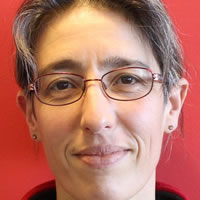
Marie Abitbol, DVM, PhD, HDR, is a professor in genetics at the Lyon School of Veterinary Medicine (VetAgro Sup, Campus vétérinaire de Lyon, Marcy l’Etoile, France).
Marie Abitbol graduated in veterinary medicine (Maisons-Alfort, France, 1999) and in human genetics (Paris, France, 2004). She was employed as an assistant professor in molecular and medical genetics at the Alfort School of Veterinary Medicine in 2001. Marie Abitbol obtained a permanent position of associate professor in genetics at the Alfort School of Veterinary Medicine in 2006. She first contributed in developing genetic tools, pedigrees and collaborations for mapping projects in companion animals. She identified several mutations responsible for interest or morbid traits in cats (myasthenic syndrome, nude syndrome, coat colours), dogs (cerebellar ataxias, deafness) and donkeys (coat colours). In 2016 she moved to the Lyon School of Veterinary Medicine where she obtained a permanent position of professor. Presently, Marie Abitbol is working on the identification of molecular bases accounting for several inherited morphological or morbidity traits in canines and felines. Her research focuses mainly on feline cardiac diseases (hypertrophic cardiomyopathies) and canine neurological and neuromuscular diseases and aims at deciphering their molecular aetiology to improve both animal and human health and welfare.

Per Arvelius was employed as researcher at the Swedish University of Agricultural Sciences from 2005 to 2015, where he also earned a PhD degree in Animal Breeding and Genetics. His research focused on how to measure and breed for behavioral traits in dogs. From 2016 to 2024, Per was Breeding Program Manager for the Swedish Armed Forces Breeding Program for German Shepherd dogs, possibly the world’s largest breeding program for Military and Police working dogs. Since March 2024, he is employed as Research Coordinator at the Swedish Defense Research Institute.
Prior to PhD studies, during the 1990’ies, Per Arvelius was a Military Dog Handler and a professional trainer of different types of working dogs. He later completed studies to meet the requirements for MSc degrees majoring in Animal Science and in Biology. In 2003 and 2005, he was principal secretary for two governmental inquiries, resulting in new legislation concerning “dangerous dogs”, and suggestions for how to organize a Swedish breeding program for service/working dogs.

Pablo Luciano Gómez de Mayora García is a veterinarian and Policy Officer in the Animal Welfare Unit (G3) of the European Commission’s Directorate-General for Health and Food Safety (DG SANTE). Previously, he worked as a veterinary expert providing support to Member State authorities on their use of the TRACES system. Currently, he supports the development of key legislative proposals, including those related to cats and dogs, and oversees studies to inform their implementation.

Head of Unit SANTE G3: Animal Welfare
Veterinarian graduated in Milan and policy official at the European Commission since February 1999.
Andrea is now leading the Unit responsible for Animal Welfare policies in DG Health and Food Safety (DG SANTE). The Unit is currently dedicated to the implementation and the reform of the EU legislation on animal welfare.
In his career, Andrea has been dealing with several strategic initiatives around animal health and welfare first at the Ministry of Health in Rome till 1999 than at the EU Commission and at more global level at the Council of Europe and at the World Animal Health Organisation (former OIE) as member of the Animal Welfare Working Group from its creation in 2005 till 2015. Furthermore, he actively supports the work in this area at FAO with different collaborations. Connected with the ONE-Health approach Andrea has been also responsible for the coordination of DG SANTE policies to fight Anti-Microbial resistance for 2 years.
For a five years period until September 2020, he also supervised the Unit in charge of the eradication of animal diseases, and he has coordinated the implementation of the European Regulation on official controls in the food, and feed area.
Andrea wrote and contributed to numerous scientific and technical articles on animal welfare and several papers on the relationships between animals and the society published at international level.
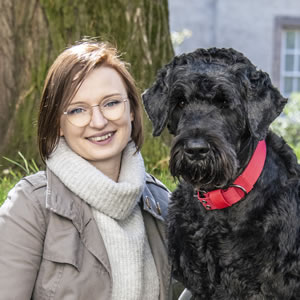
Dr Joanna J. Ilska works as the Genetics Research Manager at The Kennel Club (UK). She has joined the KC in 2021 after a decade of research in quantitative genetics at the Roslin Institute, University of Edinburgh, Scotland. Her main scientific interests revolved around genomic prediction of breeding values in complex traits across a range of species. In her role at the KC she is responsible for the development and maintenance of breeding tools offered to pedigree dog breeders, analysis of vast quantities of data stored in the KC database to identify trends and emerging needs, as well as participating in research within the broad area of Canine Health. Joanna shares her home with two Russian Black Terriers, and has competed in UK Obedience with her dogs.

Tosso Leeb is a professor of veterinary genetics at the University of Bern. His research focuses on the identification of causal genetic variants for inherited traits in domestic animals. His group has found more than 100 causal variants for hereditary diseases in dogs, cats and other companion animals.
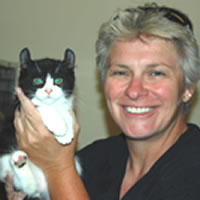
Gilbreath McLorn Endowed Professor of Comparative Medicine
Department of Veterinary Medicine & Surgery, College of Veterinary Medicine
University of Missouri – Columbia, Columbia, MO
Dr. Leslie Lyons was trained in human genetics and her postdoctoral fellowship focused on developing genetic resources for comparative gene mapping across mammalian species. Her research is currently primarily focused on heritable diseases and traits and the population dynamics of the domestic cat. Specific diseases remain of high priority, including polycystic kidney disease (PKD), skin abnormalities, structural defects, and heritable blindness. An expectation of the research is to develop drug and gene therapies and translational efforts, for one or more of these abnormalities to better develop the cat as an animal model for human disease. Dr. Lyons has also supported the community by providing DNA studies for the first cloned domestic cat, wildcat, and Sand Cat, and the GFP transgenic cat. Her laboratory has identified over 30 mutations in 21 genes including many diseases (10), several coat colors (9), several fur types (5), and cat AB / B blood type (2). Dr. Lyons recently launched the 99 Lives Cat Genome Sequencing Initiative – an effort to have deep coverage sequencing of cats with inherited diseases and as a SNP resource for the community. Dr. Lyons has 3 patents and over 190 peer-reviewed publications, including several in forensic journals. One recent work demonstrated Precision Medicine in domestic cats. Her work on cat population genetics was developed into a National Geographic Explorer episode “The Science of Cats” and she has worked with the BBC on several cat television productions, including Nova – “Cat Tales”.
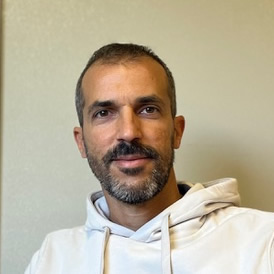
I am an evolutionary biologist with a research focus on ancient DNA as a tool for reconstructing the history of human and animal populations. By integrating genetic data with archaeological and biomolecular evidence, my work explores the processes of animal domestication and the evolution of ancient microorganisms. Since April 2021, I have been an Associate Professor of Molecular Anthropology at the Department of Biology of the University of Rome Tor Vergata, where my current research focuses on the domestication of cats.

Rowena is the Senior Lecturer in Companion Animal Behaviour and Welfare Science at the Royal Veterinary College, London. Rowena leads a research group exploring diverse topics in this area, including the impact of chronic and inherited disorders on dog behaviour and welfare, and the impact of owner knowledge, attitudes and behaviour on canine welfare. She has received >£1.9 million of research funding to date, of which ~£750,000 has been held as Principal Investigator. Rowena has co-authored >90 peer reviewed papers and book chapters since 2012 and co-edited the textbook ‘Health and Welfare of Brachycephalic (Flat-faced) Companion Animals’ (2021). Rowena holds a PhD from the Royal Veterinary College (2013) which explored the impact of extreme conformation on canine health, a 1st Class BSc (Hons) in Animal Behaviour and Welfare from the University of Bristol (2009), and a PGCert in Veterinary Education from the Royal Veterinary College (2021). Rowena is an Editorial Board Member for the journal Scientific Reports, a Coordinating Group Member for the Animal Welfare Research Network, a Canine Scientific Advisory Committee Member for Guide Dogs, and a founding member of the Brachycephalic Working Group and the Legal Advisory Group on Extreme Conformation in Dogs.

Peter Sandøe is originally trained as a philosopher at the University of Copenhagen and at Oxford University. He has been professor of bioethics at the University of Copenhagen since 1997, presently with his chair divided between the Department of Veterinary and Animal Sciences and the Department of Food and Resource Economics. Since 2020 he has been director of the Centre for Companion Animal Welfare. He is committed to interdisciplinary work combining perspectives from natural science, social science and philosophy. For more information about his research in the field of animal ethics, animal welfare, human-animal relations, and veterinary ethics see www.animalethics.net. Peter is also an active participant in public outreach and debates, both nationally and internationally. Of special relevance to companion animal welfare can be mentioned the book Companion Animal Ethics, co-authored with Sandra Corr, and Clare Palmer, published Wiley Blackwell in 2015.

Prof. Zentek received his degree as veterinarian in 1985 from the Veterinary school of Hannover. He received his doctoral degree in 1987 and the degree as specialist in animal nutrition and dietetics in 1993. The habilitation (venia legendi at the Hannover Vet School) was finalized in 1994. He had an extraordinary professorship at the Hannover vet school from 1999-2001. After one year as research scientist in Bristol/UK, school of veterinary science, he was appointed on the chair of clinical nutrition at the Veterinary University of Vienna where he also became the head of the institute of nutrition. In 2005, he was appointed as professor at the Institute of Animal Nutrition, Freie Universität Berlin. The main research interests cover the role of nutrition for the intestinal microbiota and immunity of the gastrointestinal tract. Prevention of health disorders in domestic animals is one of the main topics of the institute with a specific focus on gastrointestinal diseases. Prof. Zentek had directed a collaborative research group on the mode of action of probiotics in pigs and has been involved in many European and national research projects on feed and food safety.

Arianna Bionda is an MDV and PhD student at the Department of Agricultural and Environmental Sciences (DiSAA) of the University of Milan. Her primary research focuses on animal genetics and genomics, especially in small ruminants, cattle, and dogs, studying their biodiversity, population structure, adaptability, pathologies, and genetic originality.
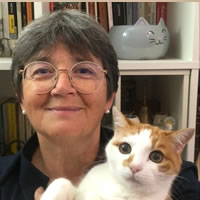
Paola Crepaldi is a professor of animal breeding and genetics at the University of Milan. Her research focuses on genomic biodiversity of farm and companion animals, investigating population structure, signatures of selection and the impact of climate change.
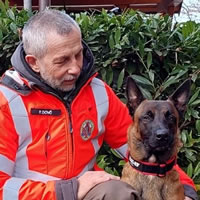
Prof, Peter DOVČ, PhD, is full professor in Genetics and Animal biotechnology at the Department of Animal Science, Biotechnical Faculty, University of Ljubljana. He graduated from the Biotechnical Faculty, University of Ljubljana and received his PhD at Technical University of Munich, Germany in 1988. In the academic year 1994/95 he was visiting scholar at the Department of Animal Science, University of California, Davis. He is leading a research group in the field of comparative genomics and genome biodiversity. An important part of his research is devoted to population studies in Lipizzan horse. He is chairing the working group for Applied Genetics of Companion Animals at the International Society for Animal Genetics. He is a member of the editorial board of the Journal of Animal breeding and Genetics, Journall of Biomedicine and Biotechnology and Frontiers in Genetics.
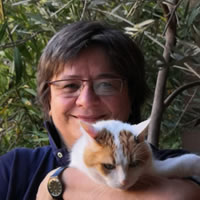
Full Professor of Livestock systems, Animal breeding and Genetics, Department of Veterinary Medicine and Animal Science, University of Milan, Lodi.
After her beginnings in molecular genetics and immunogenetics of cattle (including the first European genetic map project – BovMap), she moved to pet genetics over two decades ago. Co-founder of the Osservatorio Veterinario Italiano Cardiopatie, the service spin-off Vetogene, and the tissue repository Animal Bio Arkivi at UNIMI, she pioneered feline genetics and genomics in Italy, promoting a multilateral collaborative approach among breeders, geneticists, and vets, while fostering long-lasting international partnerships. An ISAG and ASPA member, she served as the duty lab for the ISAG cat Comparison Test in 2016 and is currently a member of the Commissione Tecnica Centrale of Associazione Nazionale Felina Italiana (ANFI-FiFE).

I’m an Animal Scientist working on canine biodiversity conservation since the nineties. I’m Associate Professor in the Department of Veterinary Medicine and Animal Science, University of Milan. My research topics are phenotyping and genotyping of breeds and population both under a morphological, health and behavioural point of view. Registered and local breeds conservation, performance and behavioral asset study are the core business of my research in different species (Poultry and Dogs in particular). Some of my papers are focused on diet integration to improve health and welfare in dog and cats and some on reproduction. I work on New Companion Animals too mainly focusing on management and reproduction. I have strong collaboration with official breed clubs and breeders finalized to improve the quality of dog, cat and rabbit breeding. I’m Technical Consultant of ENCI (Italian Kennel Club – FCI affiliate) and member of the ENCI Scientific Committee and of the ENCI Central Technical Commission (ENCI, Ministry of Agriculture, Ministry of Health). I’m member of the Scientific Committee of ASPA and EAAP Companion Animals Commissions. I’m ENCI-FCI judge.

Paolo is an Associate Professor of Veterinary Physiology and Ethology at the University of Padua, Italy, where he teaches in the Master’s Degree in Veterinary Medicine and the Bachelor’s Degree in Animal Care. His research, at the Laboratory of Applied Ethology, focuses on perception and cognition in dogs and other animals. In particular, he has explored how dogs’ characteristics such as age and sex affect cognitive abilities in the spatial domain. Moreover, he has looked into dogs’ ability to process visual information, including motion perception, visual recognition and susceptibility to optical illusions. Lately, the research activity has expanded to auditory perception, investigating basic sensory abilities, such as hearing thresholds, as well as effects of exposure to sounds on behavior and emotions in dogs. He has also been founder and president of CSC (Centro di Scienze Cinofile) a company that specializes in the organization of courses for dog professionals.

James Serpell is Emeritus Professor of Animal Welfare at the School of Veterinary Medicine, University of Pennsylvania, which he joined in 1993. He received his BSc degree in Zoology from University College London, and his PhD in Animal Behavior from the University of Liverpool, UK. His research focuses on the behavior and welfare of dogs and cats, human attitudes to animals, and the history and psychology of human-animal relationships and interactions. He has published more than 200 articles and book chapters on these and related topics, and is the author, editor, or co-editor of several books including Animals & Human Society: Changing Perspectives (1994), In the Company of Animals (1996), Companion Animals & Us (2000), and The Domestic Dog (2017). He is also the creator of the C-BARQ—currently the world’s most widely used canine behavioral assessment instrument (http://www.cbarq.org).

Erling Strandberg is professor in Genetics and Animal Breeding at the Department of Animal Biosciences, Faculty of Veterinary Medicine and Animal Science, Swedish University of Agricultural Sciences, SLU. He graduated from SLU, holds an MSc from the University of Wisconsin-Madison, and received his PhD at SLU in 1991, and a professorship in 2003. During the last 30 years, he has been involved in projects that have been aimed at quantifying the amount of genetic variation (and covariation) in various types of traits in various species. The traits studied have been fertility, health, behavior, maternal ability, performance or production, and longevity; the species dairy cattle, pigs, poultry, horses, and dogs. Regarding dogs, the focus has been on health traits and behavior, in cooperation with the Swedish Kennel Club.

Dr Tiira received her PhD in 2001 with a thesis on aggressive behaviour in fish (salmonids). Since then, she has performed post-doctoral research and worked as a university researcher (University of Helsinki). In 2008, her research focus shifted on the behavioural genetics of canine behavior (fear, noise sensitivity, stereotypic behaviour), and during 2008-2016 she worked as a senior post doc in Prof Hannes Lohi’s Canine Genetic Research group at Helsinki University. In 2016 Tiira started a company specialized on scientific testing of cognitive traits in dogs (smartDOG). SmartDOG’s main product is a testing service (cognitive and personality traits) for all kind of dogs, where we at the same time utilize the large data collected (>6000 dogs currently) for research. The latest smartDOG data research has studied differences in cognitive traits between breeds, as well as how cognitive traits associate with everyday life. Katriina has also long background in dog training and competing (search, tracking, hunting trials, obedience) with dogs from various breeds since 1986.

I was trained as an evolutionary biologist and after a PhD and post doc positions on quantitative genetics I switched to animal breeding in 2000. Since then I worked on animal health and welfare and have specialised in breeding programs to conserve genetic diversity, both for (rare) livestock breeds and dogs. I developed software to analyse population structure and inbreeding rates from pedigree data (program Retriever), and to predict future inbreeding rates under different genetic management (Pointer). I have advised numerous breeding organisations on how to set up their breeding programs avoiding excessive inbreeding rates, and supervise student projects at BSc, MSc and PhD levels.

Secretary-General for both the European Federation of Animal Science (EAAP) and the World Association for Animal Production (WAAP).
Andrea holds degrees in Animal Sciences from the University of Perugia (Italy) and advanced qualifications, including an M.Sc. and Ph.D. in Animal Genetics from the University of Nebraska (USA). He began his career at the Italian Association of Animal Breeders, later becoming National Technical Manager. He also led the International Committee for Animal Recording (ICAR) for 11 years. Andrea has coordinated two EU-funded research projects and contributed to over 20 others. He co-founded four animal science journals and has lectured in over 40 countries. He is also author of numerous research articles and dissemination pieces, in addition to writing book chapters centered on animal science. His work spans animal production, genetics, and sustainability, with a strong focus on global collaboration.
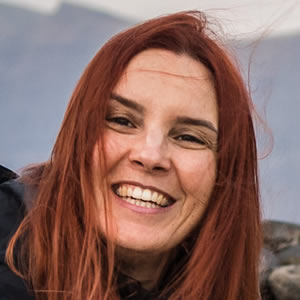
EAAP EU project manager
After an MA in European Studies earned in Belgium I attended a traineeship at the Council of the European Union. I have worked for international governmental bodies and private sector gaining professional experience in project management field, in particular regarding events organization, dissemination and administrative activities. In EAAP, I work for the EU project Unit, which has been involved in 13 EU projects, mainly in charge of the project communication and dissemination activities and I am responsible for the EAAP newsletter.

Dayna Dreger, PhD is a staff scientist in the lab of Dr. Elaine Ostrander at the NHGRI Dog Genome Project in Maryland, USA. She has previously researched canine coat color genetics, identifying numerous causal or marker mutations for hair colors and patterns, many of which are employed broadly by commercial genotyping companies. She currently focuses her research on defining dog breed relationships, patterns of breed formation, and genetic drivers of canine behaviors.